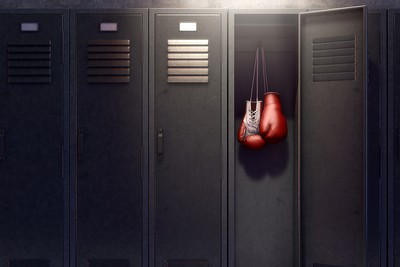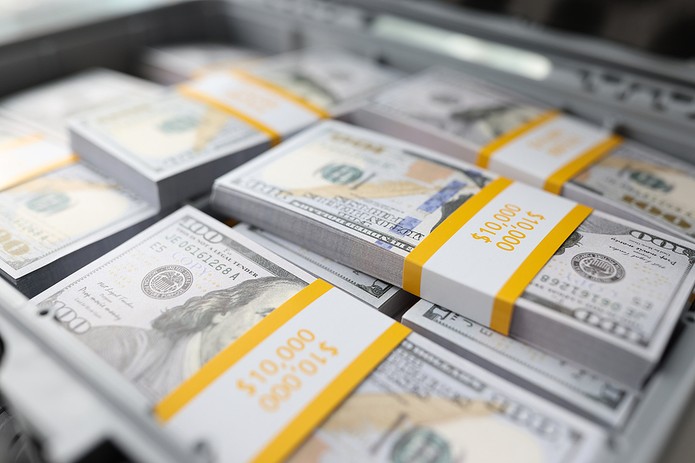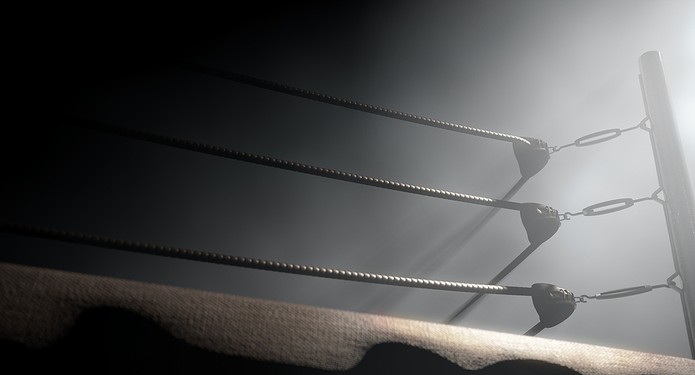 The pinnacle of any sport is surely when the best in the business go toe-to-toe on the biggest of stages.
The pinnacle of any sport is surely when the best in the business go toe-to-toe on the biggest of stages.
Boxing is a sport primed for such a notion. The ability to sell thousands of tickets at some of the largest indoor and outdoor venues, mammoth PPV sales worldwide….the pugilists get to prove who’s the best and their promoters make a ton of money. What’s not to like?
Unfortunately, such a utopian vision rarely comes to pass in the sweet science these days, with the best fighters seemingly happy to avoid one another despite the clamour from the public to watch them go at it.
Tyson Fury seems to be the master of ducking and diving both inside and out of the ring. He has so far been unable to agreed to a bout with Anthony Joshua – which would be one of the biggest in British boxing history, nor Oleksandr Usyk; if he could defeat the Ukrainian, Fury would unify the heavyweight division, which is very much the pinnacle of the sport.
The two best light-heavyweights, Dmitry Bivol and Artur Beterbiev, saw their mega fight collapse in April, and now that is unlikely to happen in 2023 at all – a year in which the pair are very much in their prime.
And despite showing an interest in tackling one another, welterweight and pound-for-pound kings Shawn Crawford and Errol Spence Jr are still to agree terms on a super-fight of their own – a bout that’s been more than a year in the making.
This is no new phenomenon either, with two of the all-time greats – Floyd Mayweather Jr and Manny Pacquiao – only finally locking horns in 2015 at a time when they were past their best.
So why don’t boxing’s best fighters actually take each other on?
Money Talks

As is the case in many sports, at the top level of boxing there’s an inordinate amount of greed.
Everyone wants their slice of the pie, and aligning all of those objectives can prove to be difficult when the various parties sit around the negotiating table.
Why didn’t Fury vs Joshua happen? According to the Gypsy King, Joshua’s representatives were simply too difficult to negotiate with, which you can read between the lines of and surmise that they asked for too much of the fight’s purse.
It has also been suggested that Fury’s demand for a 70/30 purse split in his favour against Usyk ultimately led to their undisputed clash breaking down. Turning 35 in August, it remains to be seen how many chances the Gypsy King has left to unify the heavyweight division.
Time is another factor; letting the hype train build up speed and momentum is one way of maximising the public interest in a fight. But what happens when the train reaches its station and there’s little appetite to clamber aboard because the journey took too long?
It doesn’t help that boxing is a sport with plenty of testosterone, and therefore ego, flying around. Money is a fundamental part of that, and few fighters want to be known as a stooge that accepted a lower payday to make a bout happen. Strange but true….
Joining the Dots

There are other details which may seem spurious to many, but which can ultimately lead to super-fights breaking down.
Many of the top boxers sign exclusive agreements with particular TV and streaming outfits – be it Sky Sports, DAZN, Showtime, ESPN or somebody else. So when two fighters collide that are contracted to different networks meet, a deal must be made on who will broadcast the bout.
But if no middle ground can be found, fight negotiations can be scrapped through no fault of either boxer.
Another sticking point in Fury vs Usyk negotiations is thought to be the presence of a rematch clause in the contract. The Ukrainian wants one, the Englishman doesn’t, and discussions over this mandatory second fight can ultimately end talks about the biggest fights prematurely.
Once upon a time, rematches in boxing happened organically – if the first fight was closely contested, had a contentious judges decision or was supremely entertaining, negotiations over a second scrap would be opened.
But today, the rematch clause is almost ubiquitous in discussions – some believe this locks the two fighters into a second or even trilogy-making bout that benefits neither party.
And, believe it or not, arguments over drug testing can also lead to a breakdown in talks – as happened in the circus that became Mayweather vs Pacquaio.
You would think that clean athletes wouldn’t give a hoot about drug testing – they will pass any kind of test anyway, but when Mayweather asked for random blood and urine testing prior to the fight, Pacquaio’s camp reportedly refused.
It would be another six years before their super-fight would become a reality, at which point both men were past their best.
Maintaining a Legacy

It should be said that some fighters simply don’t want to take on the risk of a dangerous opponent; a defeat harming their legacy and also, perhaps, impacting their level of interest at the Box Office.
When Deontay Wilder and Joshua were the dominant forces of heavyweight boxing in 2019, it seemed a given that they would meet. Talks took place and apparently terms were agreed, but AJ got cold feet – according to Wilder’s manager Shelly Finkel.
“Joshua said, ‘If I get $50milion I’ll fight.’ We offered him $50million for Las Vegas, he didn’t take it. He didn’t want to fight us, and you know, that’s his prerogative,” Finkel confirmed.
That’s not endemic to just men’s boxing either. According to Claressa Shields, her promotional team offered Natasha Jonas a mammoth £500,000 to take on the undisputed middleweight champion in the UK – but claimed Jonas baulked after seeing Shields defeat Savannah Marshall at ringside in London.
“It was ridiculous,” Shields said.
“They offered her a lotta money. I believe it was half a million. I mean, for women in boxing and someone of her calibre, I was shocked. they wanted the fight that bad and that’s what they offered her.
“She seen my punches in person. And all that [about] she wanted the fight, I think that left her head.”
Whether it’s due to money, ego or seemingly superfluous terms, making boxing’s big fights seems to be a losing battle.